The Best Star Trek Murder Mysteries
Here are the best murder mystery stories to ever unfold in Star Trek!
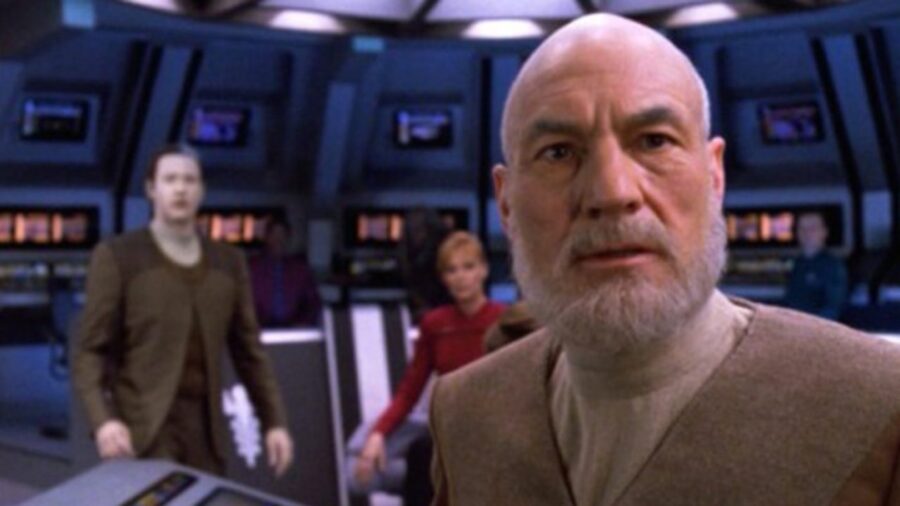
Star Trek as a cinematic and television universe has the ability to absorb a number of different genres into its stories, including comedy, romance, and even westerns. There are often mysteries to solve in the various series and films, but from time to time, there are murder mysteries—often with our beloved Starfleet officers accused of the crime. Here are seven episodes and films we think are among the best times Star Trek asked, “Who dunnit?”
7. “A Matter of Perspective” (Star Trek: The Next Generation)
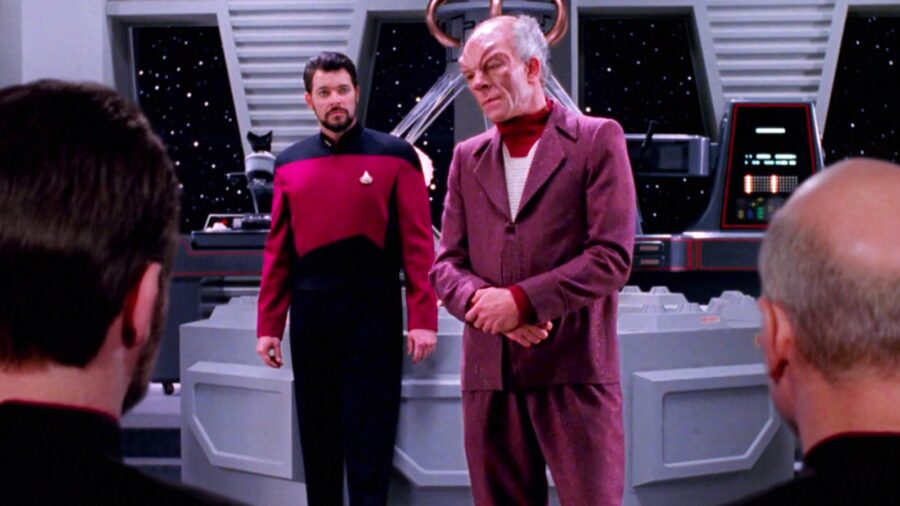
The first episode on our list was inspired by Akira Kurosawa’s psychological thriller Rashomon, known for showing various characters’ conflicting accounts of the same set of events. Commander Riker stands accused of the murder of a prominent scientist, a crime of which he maintains his innocence. The episode puts the holodeck to good use as each side is allowed to recreate for review their version of the events that led to the scientist’s death.
As with the best mysteries, the changing depictions of the same moments consistently plant seeds of doubt, while the mystery of how and why Riker was framed (or was he?) slowly unravels across the episode.
6. “Wolf in the Fold” (Star Trek: The Original Series)
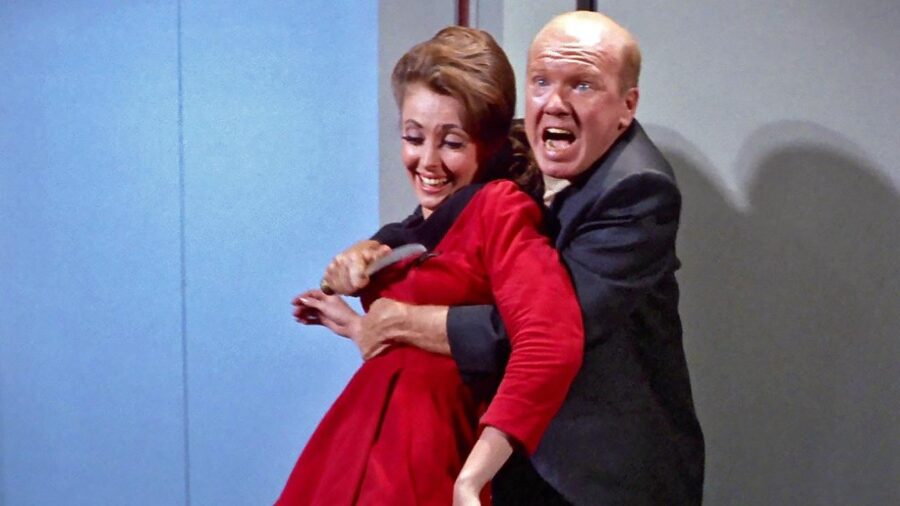
It is implied throughout Star Trek that Scotty has had his share of wild benders over the years, but this one would have to be his worst. More than once, the Enterprise’s chief engineer seems to have a blackout episode, during which he murders a young woman. All the evidence points to his guilt, but since he has no memory of the events that took place, Scotty is unable to mount his own defense.
This is a spooky Star Trek story that pushes the boundaries of the scientific and the supernatural and ties to an infamous piece of real-world serial killer lore.
5. “Ex Post Facto” (Star Trek: Voyager)
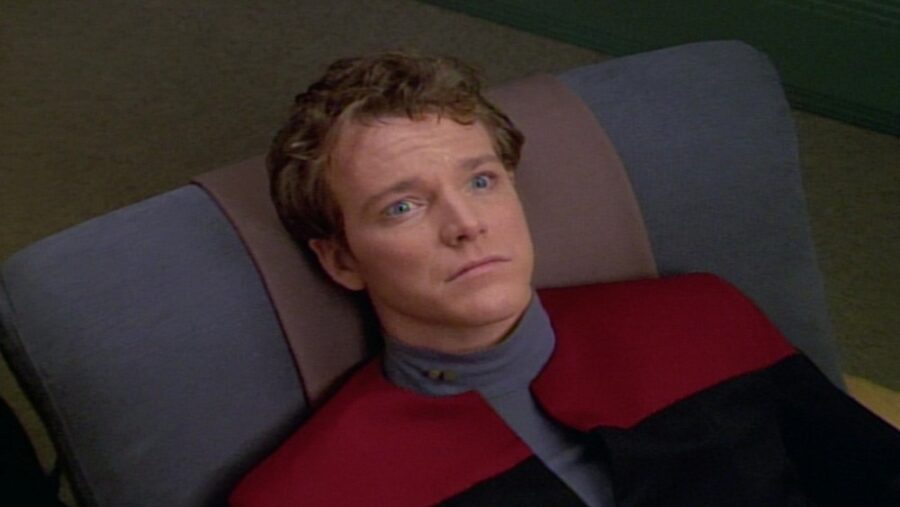
Another story featuring a Starfleet officer accused of murder, this time Tom Paris is accused and convicted of murder—on the evidence of the victim’s own memories. After engineering physicist Tolen is stabbed to death during Paris and Kim’s visit to the planet Banea, Paris is accused of beginning an affair with Ren’s wife and killing him when they are discovered together. Banean technology allows the victims memories of the event to be retrieved and viewed, and they show the lieutenant doing exactly that.
Only in Star Trek can a murder case use the victim’s memories as evidence, an intriguing angle on memory, perception, and recorded evidence that is not likely duplicated elsewhere.
4. “The Conscience of the King” (Star Trek: The Original Series)
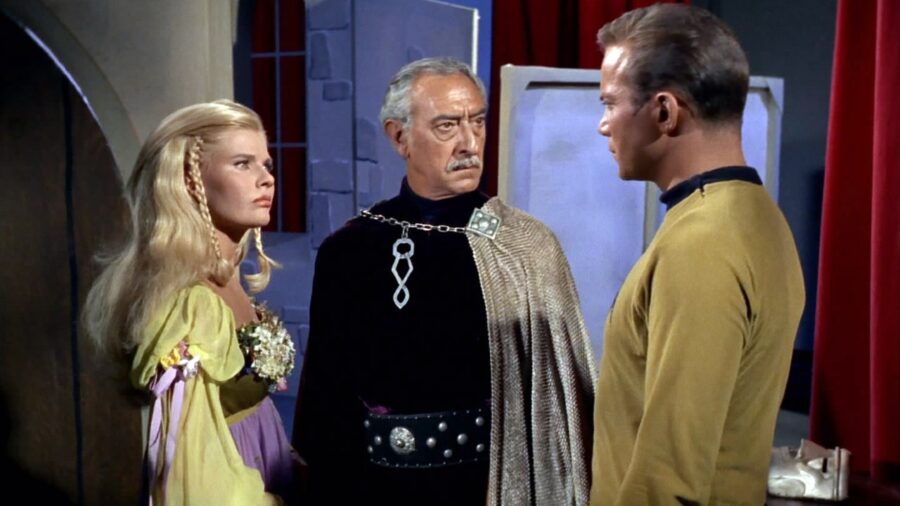
The murder at the heart of this mystery is a mass murder, one of great interplanetary infamy. The perpetrator—a former governor known as Kodos the Executioner—is known, but what is not known is whether a visitor to the Enterprise actually is Kodos. A string of murders seems to be covering Kodos’ tracks in eerie step with the thespian’s travels. The script builds a believable backstory for Kirk that gives him both the chance to actually be able to determine whether visiting Shakespearean actor Anton Karidian is the mass murderer and also gives him the potential of extreme bias.
Tightly woven and tense, the episode builds slowly to a stunning climax and features some of the most layered and nuanced performances of the series.
3. “The Darkness and the Light” (Star Trek: Deep Space Nine)
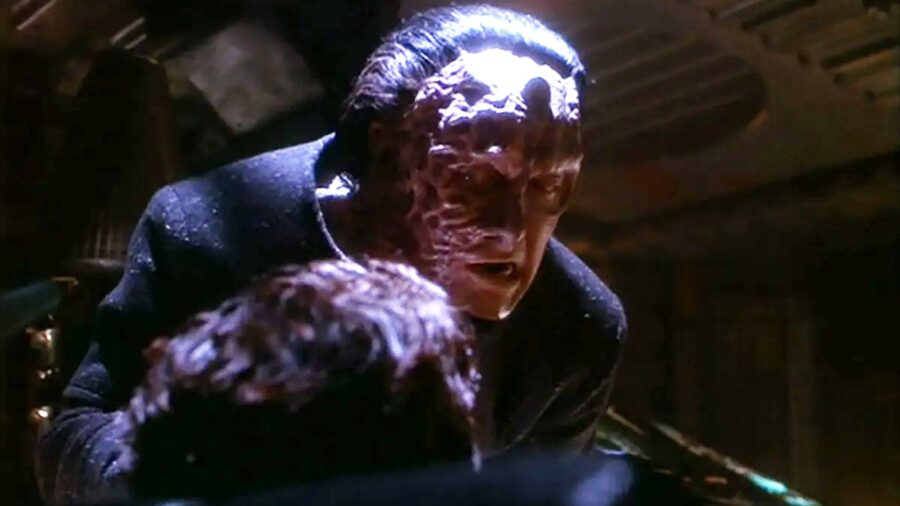
As former associates of Kira Nerys—fellow members of the Bajoran resistance—begin dying, it becomes clear that they are being systematically murdered, but no one knows why or by whom. Pregnant with Miles and Keiko O’Brien’s transplanted baby, Major Kira is pulled between her new role as a nurturer and her past as a resistance fighter. Ultimately, it is the killer’s endgame of her capture and torture that brings light to the mystery.
But the darkness the killer presents her with is the shadow side of her actions, calling into question the morality and ethics of her actions in the resistance.
2. “All Good Things…” (Star Trek: The Next Generation)
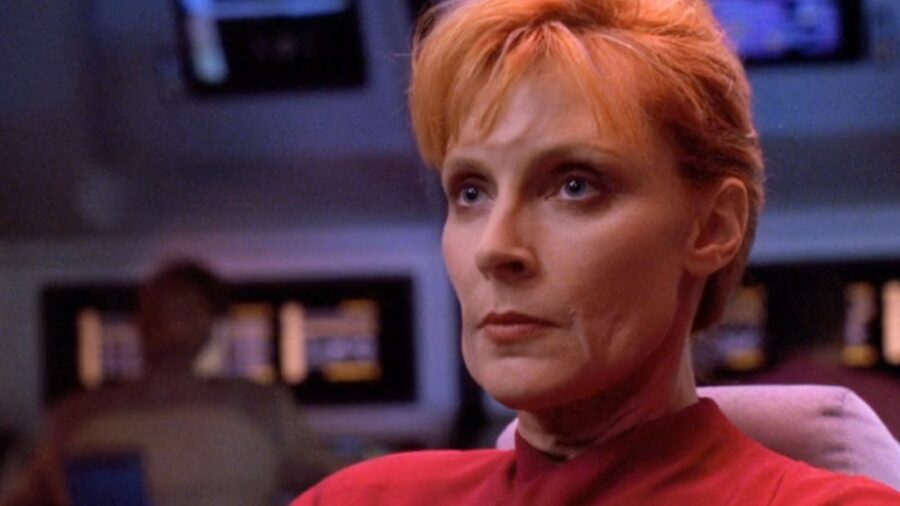
One of the greatest Star Trek episodes of all time, the TNG series finale is not usually thought of as a murder mystery, but hear us out. In this two-part episode, Captain Picard leaps back and forth between his past, present, and future to solve a mystery put to him by Q: the question of how Picard himself has destroyed the entire human race. Unlike the mysteries involving falsely accused crew members, in this story, Picard really is responsible for the eradication—the mass murder—of all of humanity.
In an expertly crafted twist, the mystery here is not who killed the human race, but how, and how he can stop himself from doing it again.
1. Star Trek VI: The Undiscovered Country (1991)
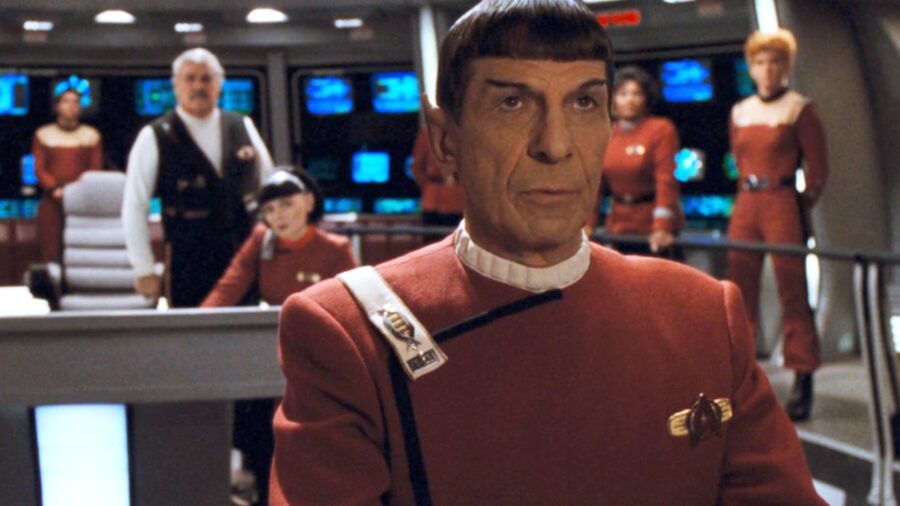
More than just a murder mystery, this final voyage for the Original Series crew is an investigation of an assassination of Klingon Chancellor Gorkon, in which some of the Enterprise crew appear to have played a part. Dr. McCoy and Captain Kirk are convicted of the crime and given life sentences on the gulag Rura Penthe, but Spock is busy channeling his “ancestor” Sherlock Holmes to get to the bottom of the assassination and the killings that have occurred since. Part mystery, part prison break, part diplomatic dialogue, and part political conspiracy thriller, this classic film owes its inspiration to post-Cold War relations between the US and the former Soviet Union.
It also benefits greatly from its writer and director Nicholas Meyer’s intimate knowledge of Holmes and ability to craft a complex caper that manages to touch on very relevant social and political issues.
All of these episodes and Star Trek VI are streaming now on Paramount+.












